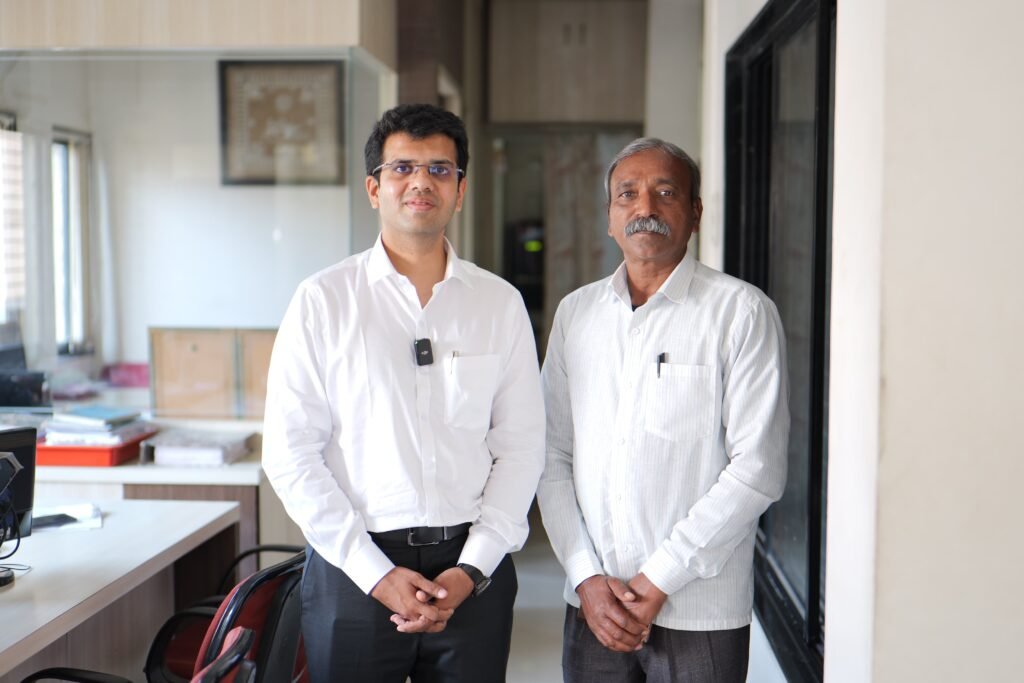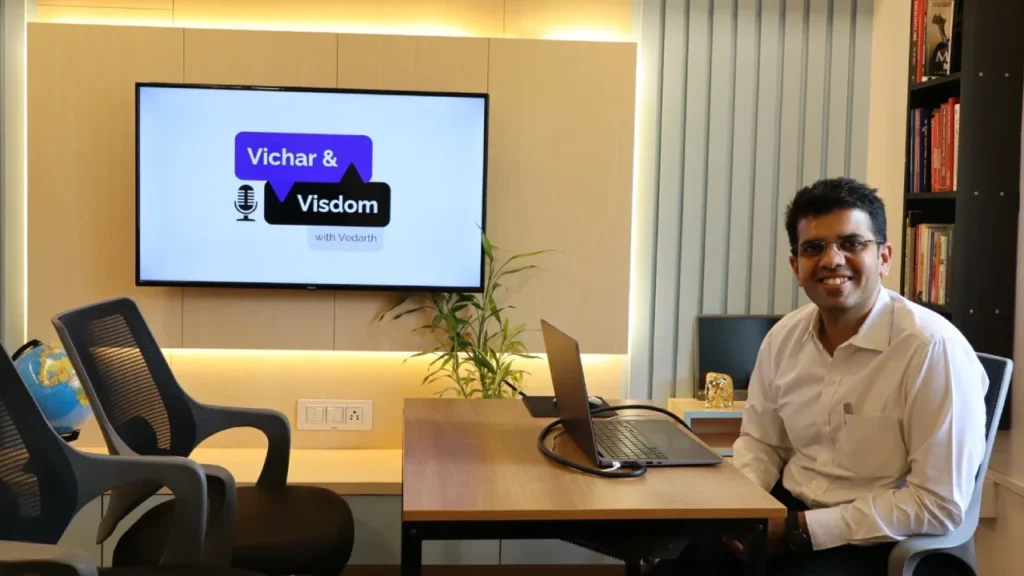A man’s prime starts at 30. I heard this online a few months back, and I’ve been thinking about it ever since. Is it true?
I believe it is. At least for men whose success depends on mental strength rather than physical. Most self-made men spend their 20s learning what it takes to be successful in their 30s and 40s for explosive growth. Different situations create different stories, but this holds true for most cases I’ve seen.
Reflecting on my experience, I couldn’t agree more with this thought. I started working when I was 19 and quite literally started from scratch. It took me almost 10 years to build a stable enterprise that makes good money and positively impacts society.
Now that I’m nearing turning 30, it is time to prepare to be in my prime.
That’s why I started ‘Vichar & Visdom with Vedarth’s series of talks/podcasts and this blog. ‘Vichar’ is ‘thought’ in the Marathi language, and ‘Visdom’ is wisdom. So this blog is essentially a collection of my wise (you’re the judge) thoughts.
I aim to share ‘notes’ of my weekly learning and activity. My innocent, selfish goal in writing these blogs is to be more organized myself about my thoughts and what I’m doing in my life. But at the same time, I want to enrich you with my thoughts and problem-solving methods, should you consider them valuable.
Let’s begin.
What does ‘prime’ mean?
Best to my knowledge, ‘prime’ is when you’re at your peak. Peaking in terms of physical, mental, spiritual, and financial strengths.
Also, culturally speaking, at least in India, young men are generally not considered as mature as men in their 30s or 40s (even if they are). It’s not universal, of course, but I’m trying to decode the world as it is, not how it ideally should be.
So, being in your prime is probably about being in a position to fully utilize your strengths.
How can a man best use his ‘prime’?
By definition, ‘prime’ will not last forever. So, men should be aware of this and try to maximize success when they’re in their prime. But what ‘kind’ of success exactly?
In my opinion, success that lasts is more valuable than success that eventually fades away. ‘Just more money’ is not everything.
The Tatas in India, who took 150 years to be in their prime in the 21st century, are probably more valuable in my eyes than a tech startup reaching a $100 billion valuation in 20 years. The difference is sustainability.
Tata Group, which employs hundreds of thousands of people, is run professionally, and has such a deep impact on society, will not fall overnight. A tech startup possibly can.
Just like calories, not all dollars are the same. A rupee earned via a sustainable business model is more valuable than a rupee earned with something that might not last the next decade.
But this does not mean we should not take risks and try new things. But no risk is worth sustainability, I believe.
So in my opinion, men should use their prime to maximize success that can be sustainable.
Let me share a couple of my experiences in the last week that made me more aware of the topic of this blog.
Meeting Chaitram Pawarji at Dhule

Last week, I was in Dhule to shoot some of my next podcasts. One of them was with Chaitram Pawar, who was recently nominated for the prestigious Padmashree award in India.
The experience of visiting him at Paripada village, meeting him at home, talking to his son, and listening to his ‘vichar’ gave me new insights into how one should think about life and legacy.
I realized that a few years of doing the right things is enough to have a more significant impact than a lifetime of average effort. The key is to maximize whatever you’re good at in your prime. I believe this is the lesson I was supposed to learn there.
अर्थसंकल्प २०२५ – CA श्रीराम देशपांडे | कै. के मा देशपांडे स्मृती व्याख्यानमाला, वर्ष २५ वे

Last week, I was also at the 25th K M Deshpande Memorial Budget Speech organized by my father. He started it in the memory of his father, my grandfather, 25 years ago.
All good men know they can only make the best of the opportunities they come across in their prime. My father did the same. He did not try to chase the rabbit but made the best of what he had in this prime. That made him successful not only professionally but also socially and personally.
‘Prime’ is a Perspective
So then, are your 30s, 40s, and 50s your only prime years? Of course not. But the more I observe successful people around me, the more I realize that your 20s and 60s are generally about gaining and maintaining momentum, respectively. The real growth happens in between.
One should feel at his prime at all times, though, as the time is always right to do what is right. Just when you consider the impact your work can have, your prime is your best chance.
I think of life as a journey, a conscious ride among collections of atoms without meaning otherwise. All I do will be irrelevant eventually, so the only question is how far and how long the impact of my work lasts.
I hope my prime will help me maximize that.







